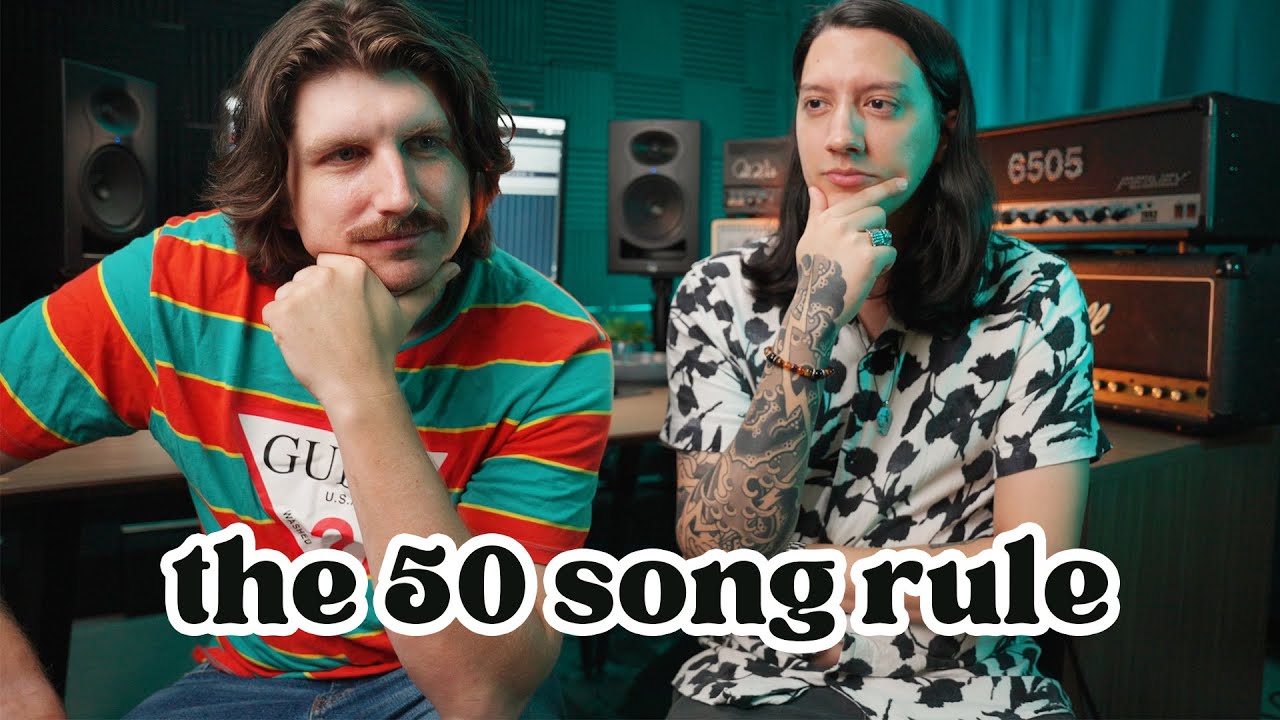22 Tips To Level Up Your Music Production
Summary
TLDRJosh Baker, a Manchester DJ and producer, shares 22 crucial tips for aspiring music producers in this YouTube video, derived from his eBook. He emphasizes patience, the importance of mentors, and the value of practice. Josh advises against over-EQing and over-reliance on sample packs, highlighting the benefits of using loops and plugins. He also discusses technical aspects like referencing, sending returns, and mastering. The video encourages producers to trust their ears, experiment, and invest in hardware and software to improve their music production skills.
Takeaways
- 🎧 Be patient in your music career; it often takes time to achieve success.
- 🧑🏫 Find a mentor to guide you and help avoid common mistakes.
- 🎸 Practice consistently; frequent short sessions are more effective than infrequent long ones.
- 🚫 Don't compare yourself negatively to others; use their progress as inspiration.
- 🔊 Check your mixes on different speakers to ensure they sound good in various environments.
- 💽 Classic drum machines are often better than over-processed sample packs.
- 🎶 Using loops is not cheating; they can help fill out grooves and add movement to your tracks.
- 🛠 Invest in quality plugins to enhance your production; they offer better sounds and are easier to use.
- 📐 Trust your ears when mixing; over-EQing can thin out your sound.
- 🎚 Utilize send and return tracks for effects to save CPU and maintain consistency in your mix.
Q & A
What is the main purpose of the video presented by Josh Baker?
-The main purpose of the video is to share 22 insights and lessons that Josh Baker wishes he had known earlier in his career as a DJ and music producer, to help others who want to take their music to the next level.
What does Josh Baker emphasize as the first point in his presentation?
-Josh Baker emphasizes the importance of being patient in the music industry, noting that success often comes to those who are not in a rush and enjoy the process.
Why does Josh Baker suggest finding a mentor in the music industry?
-Josh suggests finding a mentor to learn from their experiences and mistakes, which can significantly shorten the learning curve and help avoid common pitfalls in the music industry.
What does Josh mean by 'practice makes permanent'?
-This phrase means that consistent practice is key to improvement. The more one practices, the more ingrained the skills become, leading to better performance over time.
Why is Josh Baker against the idea of buying numerous sample packs?
-Josh believes that having too many sample packs can lead to over-reliance on pre-made sounds and can hinder the development of one's unique sound and creativity.
What is Josh Baker's stance on using loops in music production?
-Josh supports the use of loops as a tool to fill out grooves and ideas quickly. He argues that they are not cheating but can be beneficial when used appropriately.
Why does Josh Baker recommend investing in plugins for music production?
-Josh recommends investing in plugins because they offer better sound quality and are easier to work with when finding good sounds, which can significantly improve the production process.
What is the significance of 'Kickstart' plugin mentioned by Josh Baker?
-The 'Kickstart' plugin is significant because it simplifies the process of side-chaining, allowing producers to make sounds duck under the kick drum, making the kick sound fatter and more prominent in the mix.
What advice does Josh Baker give regarding the use of EQ in music production?
-Josh advises against over-EQing, as it can make tracks sound thin and harsh. He suggests using EQ to clean up the mix by addressing resonant frequencies and removing unwanted sounds rather than over-processing.
How does Josh Baker view the role of sending returns in music production?
-Josh views sending returns as a powerful tool for applying effects to multiple sounds in a mix, such as reverb and delay. It helps to save CPU usage, keep everything in the same space, and improve the overall sound quality.
What is the importance of trusting one's ears in music production according to Josh Baker?
-Trusting one's ears is crucial because it allows producers to make decisions based on how the music sounds rather than solely relying on visual cues from the equipment, leading to a more authentic and pleasing mix.
Why does Josh Baker recommend using hardware in music production?
-Josh recommends using hardware because it can make the production process more tangible and enjoyable, and it can also inspire creativity beyond what software alone can offer.
What is the final point that Josh Baker makes in his presentation?
-The final point Josh makes is about the importance of investing in one's music production journey, whether it's through software, hardware, or other resources, as it demonstrates commitment and can lead to better results.
Outlines

Dieser Bereich ist nur für Premium-Benutzer verfügbar. Bitte führen Sie ein Upgrade durch, um auf diesen Abschnitt zuzugreifen.
Upgrade durchführenMindmap

Dieser Bereich ist nur für Premium-Benutzer verfügbar. Bitte führen Sie ein Upgrade durch, um auf diesen Abschnitt zuzugreifen.
Upgrade durchführenKeywords

Dieser Bereich ist nur für Premium-Benutzer verfügbar. Bitte führen Sie ein Upgrade durch, um auf diesen Abschnitt zuzugreifen.
Upgrade durchführenHighlights

Dieser Bereich ist nur für Premium-Benutzer verfügbar. Bitte führen Sie ein Upgrade durch, um auf diesen Abschnitt zuzugreifen.
Upgrade durchführenTranscripts

Dieser Bereich ist nur für Premium-Benutzer verfügbar. Bitte führen Sie ein Upgrade durch, um auf diesen Abschnitt zuzugreifen.
Upgrade durchführenWeitere ähnliche Videos ansehen

If you want to write songs for a living, watch this.

Easiest Way to Get MORE DJ Mix Plays (why is no one doing this?!)

How to Make VIRAL Instagram Reels as a Music Producer like Sammy Porter

He grew 1000s of followers on SoundCloud & grew a FANBASE! 📈

He saved TIME on Social Media as Music Producers

30 Music Production Tips in Under 16 Minutes
5.0 / 5 (0 votes)
